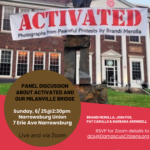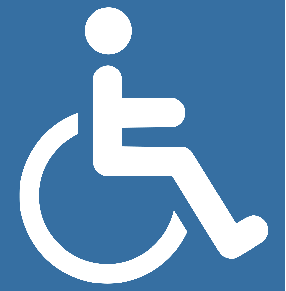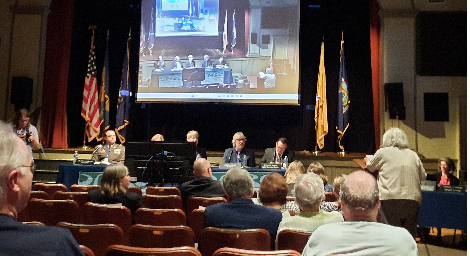
How WE Can Help Save and Rehab the Skinners Falls – Milanville BRIDGE
June 19, 2023
ACTIVATED – Join Our Panel, Live and on Zoom, June 25
June 20, 2023The letter below, supported by most members of the Delaware River Coalition, is a DCS initiative with input from our lawyer, Lauren Williams, and disability rights attorney, Laura Caravello. It asks for the resumption of remote commenting at DRBC business meeting open comment sessions. Download the letter as a pdf here.
June 20, 2023
Dear DRBC Commissioners and Staff,
As residents of and advocates for the Delaware River Basin, we request that the DRBC resume its COVID pandemic practice of providing for remote participation in the open comment period at DRBC business meetings. Such a step is consistent with laws requiring access for individuals with disabilities. Further, remote participation is advisable given that: 1) the DRBC is an interstate governmental agency in the United States of America, and as such intrinsically the representative of the citizens it exists to serve; 2) open comments are an important means to maintain the flow of information available to the commissioners; and 3) allowing for remote comments is necessary to maintain consistency with the principle of equal and uniform treatment of all stakeholders in the Delaware River Basin set forth in Section 1.3.e of the DRBC’s founding contract.
Section 504 of the Rehabilitation Act[1] and Titles II and III of the Americans with Disabilities Act (“ADA”)[2] require that the DRBC ensure that its meetings, programs, and activities are open and accessible to disabled individuals. Also, DRBC member states have open meeting requirements and their own prohibitions against discrimination and exclusion of disabled and aged individuals from public meetings and events. The removal of virtual commenting during business meetings cuts off the ability of disabled and aged Basin residents and others to actively participate in such meetings, contrary to federal and state law.
The DRBC already accepts remote comments for its docket hearings. The COVID pandemic period during which DRBC accepted comments remotely at business meetings allowed the agency to set up and smooth out any glitches in technology. Indeed, the DRBC still uses the same virtual commenting format for public hearings, making the removal of virtual commenting during business meetings even less defensible. Thus, for the stated reasons, it is neither a fundamental alteration nor an undue hardship for the DRBC to continue allowing virtual participation by the public.
The insistence on in-person representation also violates Section 1.3.e of the DRBC Compact, specifically its commitment “to apply the principle of equal and uniform treatment to all water users who are similarly situated and to all users of related facilities, without regard to established political boundaries.” The in-person requirement favors lower Basin residents/commenters and all those close to Trenton over people who reside elsewhere. Those at the farthest reaches of the Basin, such as those of us near the headwaters of the river in PA and New York or the mouth of the river in Delaware, have a much bigger problem getting to meetings. These discrepancies in treatment based on geographic location and economic status (e.g. ability to leave work to attend a meeting) exacerbate the in-person requirement’s exclusion of people with disabilities.
One group of people can be heard; another much larger group, cannot, despite the DRBC’s demonstrated ability to provide for remote participation.
In the light of all these considerations, we respectfully request that DRBC resume the practice of allowing the public to participate remotely in the open comment session of business meetings.
We respectfully request a reply.
Thank you,
B. Arrindell, Director
Damascus Citizens for Sustainability
Tracy Carluccio, Deputy Director
Delaware Riverkeeper Network
Karen Feridun, Founder
Berks Gas Truth
Taylor McFarland, Conservation Program Manager
Sierra Club, NJ Chapter
Sahana Rao, Staff Attorney
New York Regional Team
Natural Resources Defense Council
Wes Gillingham, Associate Director
Catskill Mountainkeeper
Matthew Smith, NJ Director
Food & Water Watch
Doug O’Malley, State Director
Environment New Jersey
[1] “No otherwise qualified individual with a disability in the United States . . . shall, solely by reason of her or his disability, be excluded from the participation in, be denied the benefits of, or be subjected to discrimination under any program or activity receiving Federal financial assistance . . . .” 29 U.S.C. § 794(a); see also 29 U.S.C. § 794(b) (defining “program or activity” to include, inter alia, an “instrumentality of a State” or “any other entity which is established by” entities, “any part of which is extended Federal financial assistance.”).
[2] The DRBC is a “public entity” under 42 U.S.C. 12131(1)(B), as it is an “instrumentality of a State or States.” See also Compact, Section 2.1. 42 U.S.C. § 12132 prohibits the DRBC from excluding disabled persons “from participation in”, or denying such people “the benefits of the services, programs, or activities of a public entity,” i.e. the DRBC. See also 42 U.S.C. § 12182 (re: public accommodations).




